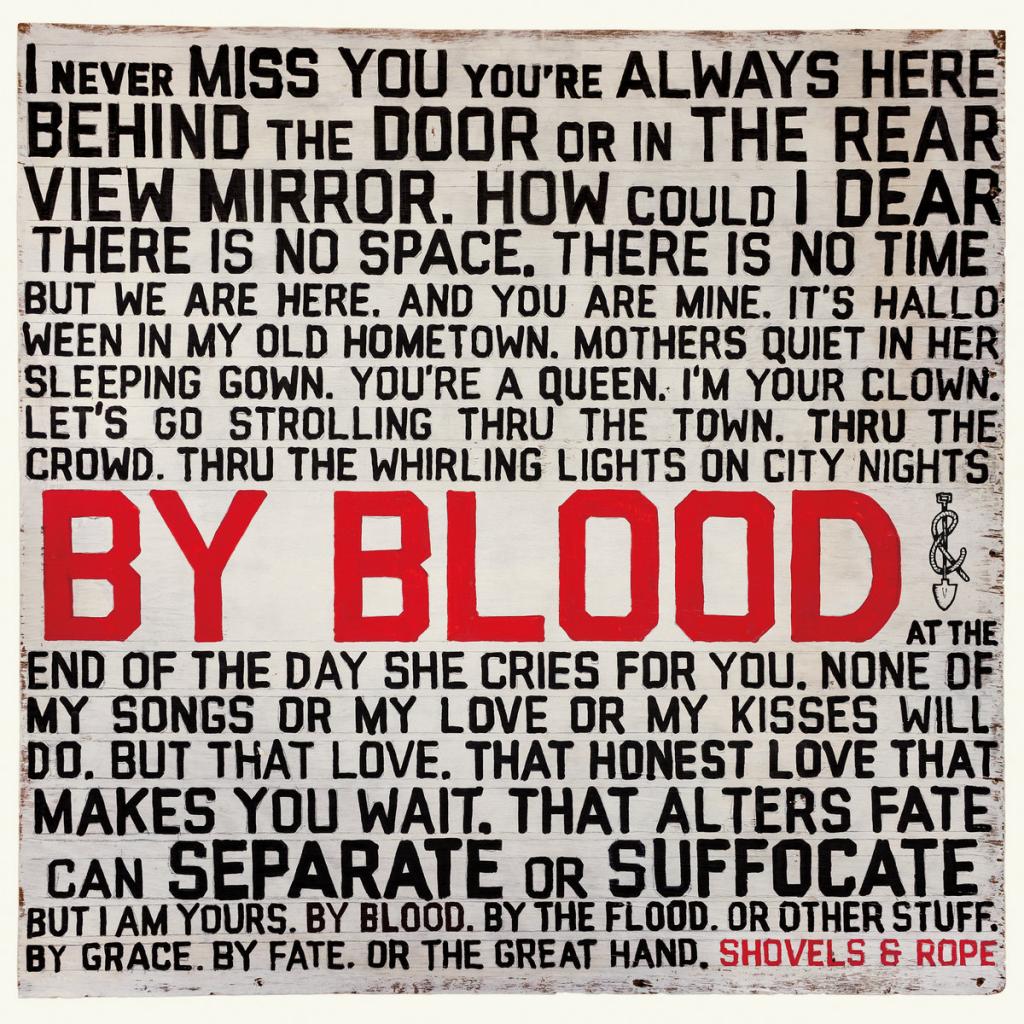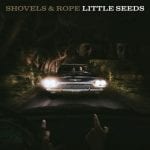Shovels & Rope Explore New Possibilities on ‘By Blood’

On 2012’s O’ Be Joyful, Cary Ann Hearst and Michael Trent of Shovels & Rope melded elements of punk, rock, and honky-tonk, tune after tune featuring hummable melodies and catchy hooks. Hearst and Trent each delivered cogent lead vocals, their voices frequently blended to create an energized doubling effect (more so than harmony). Joyful was one of the standout releases of 2012. I later saw the band perform at Neighborhood Theatre in Charlotte, North Carolina, one of the more sensual and sublime shows I’ve attended.
I’m not as devout a fan of 2016’s Little Seeds, though several songs from that set reaffirmed the husband-and-wife’s songwriting prowess and undeniable chemistry (“Botched Execution” and “St. Anne’s Parade” are gems). I was less enthused about the two “covers” albums, Busted Jukebox, Volumes 1 & 2. While renditions of songs as diverse as Guns N’ Roses’ “Patience” and Emmylou Harris’ “Leaving Louisiana in the Broad Daylight” displayed the pair’s versatility, many of the takes landed flatly. It’s my sense that these projects served more as manifestoes — a way for Hearst and Trent to illustrate their coolly eclectic affinities — than significant reinterpretations of important songs (that said, their mercurial rendition of Lou Reed’s “Perfect Day,” enhanced by the contributions of Preservation Hall Jazz Band, is perhaps superior to the original).
If Joyful revealed Shovels & Rope at an inspirational peak, and Little Seeds showcased the couple striving to reconstruct a creative high, By Blood is a cautious foray into new possibilities, bringing mixed results. The project opens with “I’m Comin’ Out,” Hearst’s twangy voice situating the project squarely in Americana territory. “Mississippi Nuthin’” features Hearst and Trent sharing lead vocals, relying on their signature doubling effect. The duo’s voices have clearly continued to mature, both singers more attuned to melodic and emotional nuances. “The Wire” opens with a luring riff reminiscent of The Stones’ “Satisfaction,” making notable use of loud/soft dynamics, while “C’Mon Utah” sports a melody reminiscent of The Beatles’ “Rocky Raccoon.” “Carry Me Home” includes the memorable lines, “The thunder does the talking / But the lightning does the work,” balancing accessibility and poetic mystique. “Twisted Sisters” employs a call-and-response approach and a neo-’50s sound that reminded me of Shannon and the Clams. The song accentuates Hearst and Trent’s desire to plumb new territories; the melody, however, noticeably sags.
On “Pretty Polly,” the pair’s effulgence carries the track, though the melody, again, fails to fully translate. “Hammer” is the most lo-fi track on the album, spotlighting Trent’s range as a producer. While the melody falls short, the piece as a whole is an intriguing experiment in atmospherics, a cacophony of instruments and disconnected vocals that Tom Waits (or Captain Beefheart, from the grave) might champion. “It’s Halloween in my hometown / Mother’s quiet in her sleeping gown / You’re a queen, I’m your clown / Let’s go strolling through the town,” the duo sings on the closing title song, employing a melodic and instrumental simplicity reminiscent of earlier work.
With By Blood, Hearst and Trent reach for compositional variations, using volume dynamically and transitioning seamlessly between busy and austere soundscapes. Individual and dyadic vocals are stellar, as would be expected. On the other hand, By Blood’s melodies often occur as inchoate or formulaic. Meanwhile, lyrics are less singularly narrative and anecdotal, and more oblique than on previous projects, which many listeners will find literarily engaging. By Blood mostly succeeds, though it may prove to be a “bridge project,” Trent and Hearst exploring aesthetic directions that will come to greater fruition on subsequent releases.




